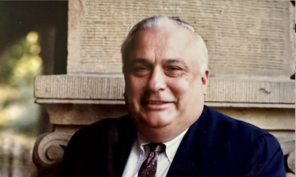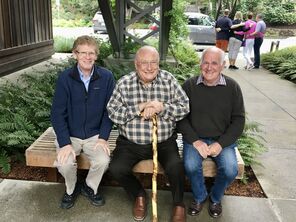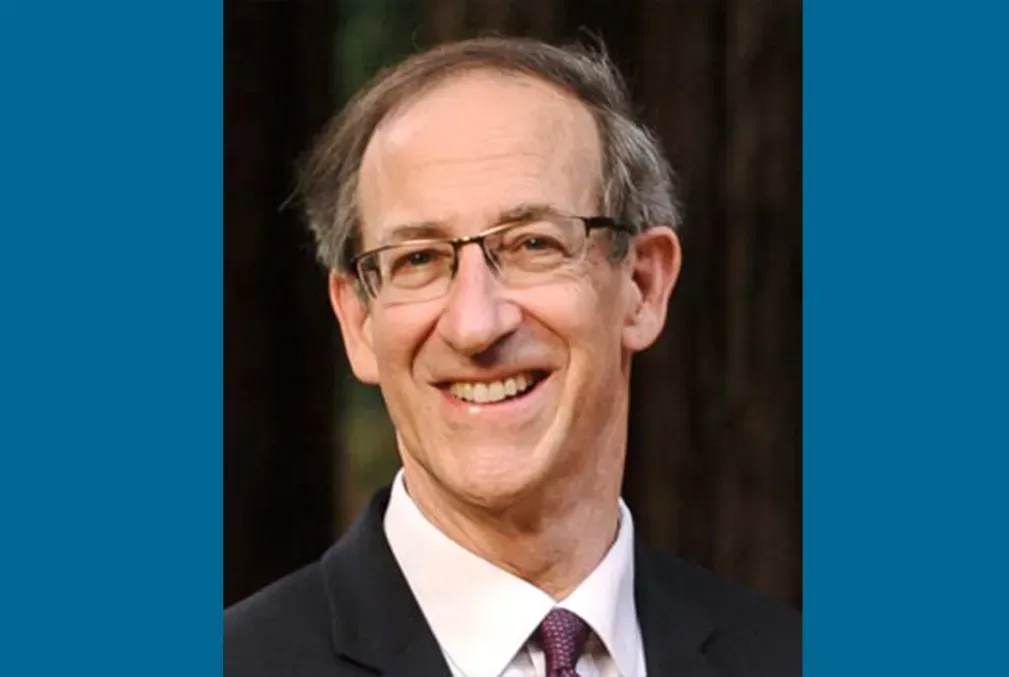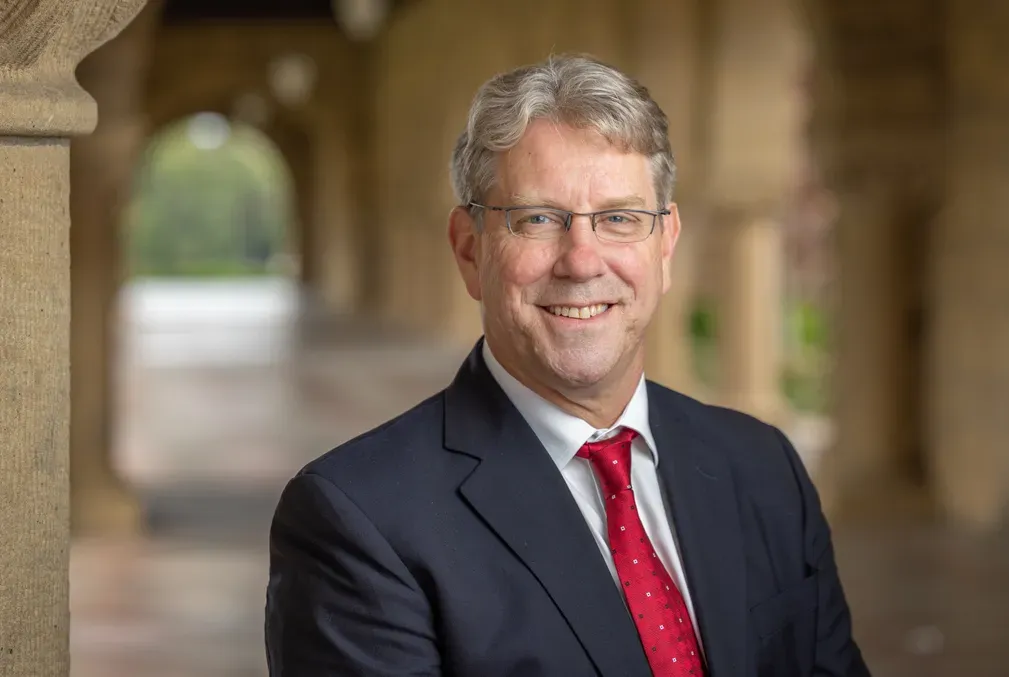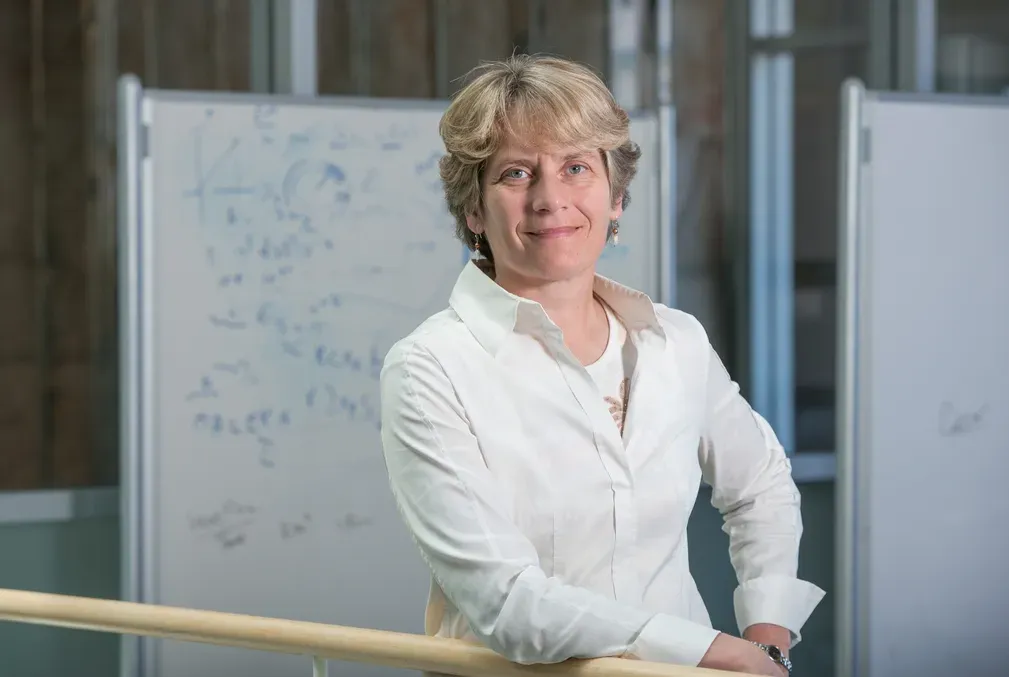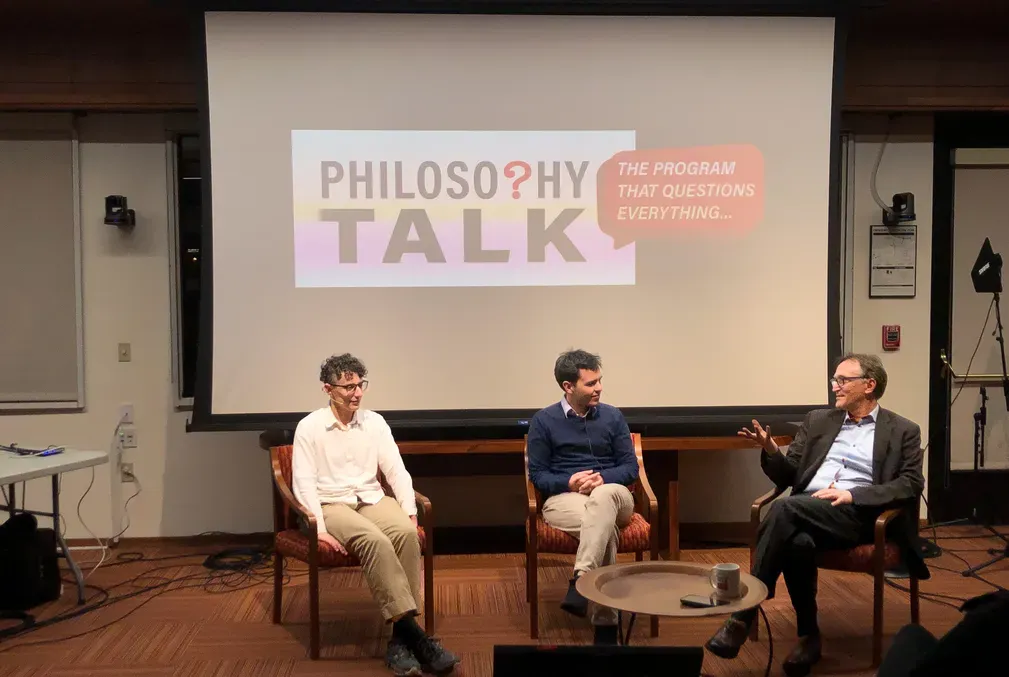Walter Falcon, global authority on food security and the economics of agriculture, has died
Raised on a farm in east Iowa and educated in a one-room schoolhouse, Falcon became an internationally sought-after agricultural adviser as a Stanford professor.
Walter P. “Wally” Falcon, the Helen C. Farnsworth Professor of International Agricultural Policy, Emeritus, in the Department of Economics in the Stanford School of Humanities and Sciences, former deputy director of the Center on Food Security and the Environment, and former director of the Freeman Spogli Institute for International Studies, died Aug. 2 at his family farm in Marion, Iowa. He was 86.
The farm had been his wife’s family homestead. Falcon was raised on a similar farm just a mile away. From there, he became one of the world’s foremost authorities on food security, agricultural policy, and the economics of agriculture—but always with a down-to-earth manner that was his trademark.
“I had the incredible opportunity of co-teaching the World Food Economy course with Wally for over 25 years, and I loved listening to his lectures,” said former student Rosamond “Roz” Naylor, the William Wrigley Professor in the Stanford Doerr School of Sustainability and a longtime friend and collaborator of Falcon’s on academic papers and field projects throughout the world. “Not only was he rigorous in his economics and policy analysis, but he told wonderful stories that made the students and me laugh every class. He was the antithesis of an ivory tower scholar and an incredibly important person in my life.”
Iowa farm to Stanford’s “Farm”
“The early days on the farm—up early, working hard, leadership, having to stand up to say what you meant in a lot of activities—[that] was really important in my life,” Falcon recalled in a 2013 oral history recorded by the Stanford Historical Society. “In fact, I might still have been a farmer were it not for the fact that (a) I was a reasonably good student, but (b), and perhaps equally importantly, I’m allergic to corn.”
Falcon was a globally recognized and sought-after consultant to governments and food-related international organizations. He was a trustee of Winrock International and chairman of the board of the Agricultural Development Council, the International Rice Research Institute, and the International Maize and Wheat Improvement Center.
He came to Stanford in 1972 from Harvard University (where he was a professor of economics) to direct the Food Research Institute, where he would serve until 1991. Falcon then directed the Freeman Spogli Institute for International Studies from 1991 until 1998. He also established the Center for Environmental Science and Policy with Donald Kennedy, former university president, in 1998. He co-directed the center from 1998 until 2007. During his 50 years at Stanford, he was also a leader on campus, serving as senior associate dean for the social sciences, as a member of the academic senate, and twice as a member of Stanford’s Advisory Board.
In addition to his significant contributions as a leader and adviser in his field, he also wrote and co-authored more than 60 papers on topics including food security, the effects of El Niño on Indonesian agriculture, and the impact of policy reforms on agriculture in Mexico. His paper “The Green Revolution: Generations of Problems,” published in the American Journal of Agricultural Economics in 1970, was honored by the American Agricultural Economics Association. He also wrote and co-authored more than 25 books and book chapters. Perhaps his best-known book, Food Policy Analysis (Johns Hopkins University Press, 1983), co-authored with C. Peter Timmer and Scott R. Pearson, was translated into Chinese, French, Portuguese, Spanish, and Vietnamese.
Falcon was elected as a fellow of the American Association for the Advancement of Science in 1991. He was especially proud to have earned the prestigious Bintang Jasa Utama (First Star) Medal of Merit in 1992 for his 25 years of service to the Indonesian government. Falcon was also a commissioner for the U.S. Presidential Commission on World Hunger in 1978 (with John Denver and Harry Chapin, among other commissioners). In 1989, he was cited as the outstanding graduate of Iowa State University’s class of 1958.
A trusted voice
After retirement, Falcon continued to publish and to advise on agricultural matters. His final paper, “Rethinking Global Food Demand for 2050,” co-authored with Naylor and Nikhil D. Shankar, then a research fellow at Harvard, was published in 2022. In 2012, he began writing “Field Notes from an Iowa Farm,” an annual missive published in Farming Magazine and written in his folksy style that those closest to him knew well. The final field note came in November 2022.
“I’ve really been incredibly lucky in my career, working for two of the greatest institutions in the world, in interesting jobs within them, and been more or less successful,” Falcon said in the oral history. “You perform to your own standards. What other people think, that’s their problem.”
“Wally was the trusted voice of wisdom and experience, the experts’ expert,” said close friend Cary Fowler, special envoy for global food security at the U.S. State Department “When I was stymied, confused, or just plain out of my depth, Wally was absolutely the first person and usually the only person I would call. He was unfailingly supportive and a true raconteur to boot. He lifted up those around him by opening doors, giving encouragement, and inspiring all to up their game.”
Walter Phillip Falcon was born Sept. 28, 1936, in Cedar Rapids, Iowa, the son of Norman and Esther (Hurwitz) Falcon. He earned his Bachelor of Science in agricultural economics at Iowa State in 1958 and a Master of Arts and a doctorate in economics from Harvard in 1960 and 1962, respectively. His Harvard education was underwritten by a Danforth Fellowship from the family behind the Ralston Purina Company. His doctoral research included a year in Pakistan, with his young family in tow.
“The move from Massachusetts to Karachi was less traumatic culturally than going from rural Iowa to the Boston area,” Falcon joked in the oral history.
Walter Falcon is survived by his wife of 67 years, Laura Carolyn (Hann) Falcon, of Stanford, California; two children, Lesley Falcon-Harney (Daryl) of Grand Island, Nebraska, and Andrew Falcon (Mary) of Stanford; as well as two grandchildren, Hallett and Andrew Falcon, also of Stanford. He was predeceased by his brother, Gene Falcon, and his son, Phillip James Falcon.
In lieu of flowers, donations can be made to the family in care of Murdoch Funeral Home in Marion.
